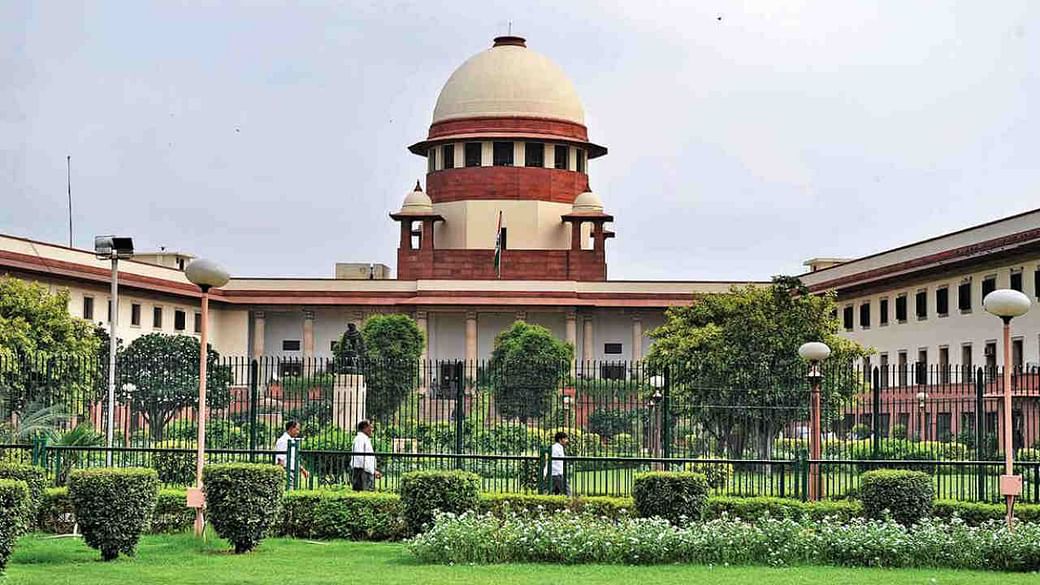
Why no arrests, what message are we sending? SC raps Uttar Pradesh govt

The Supreme Court, on Friday (October 8), said it was “not satisfied with the steps taken” by the Uttar Pradesh government so far in investigating the October 3 violence in Lakhimpur Kheri. Four farmers were mowed down by the cavalcade of Ashish Mishra, son of Union minister of state (home affairs) Ajay Mishra, in Lakhimpur Kheri and the violent clashes that followed at the site of the incident claimed another four lives, including that of a local journalist.
A three-judge bench headed by Chief Justice of India NV Ramana had, on Thursday, heard the matter, based on letter petitions he received from two lawyers requesting for the Supreme Court’s immediate intervention. The court had asked the Uttar Pradesh government to file a status report on the investigation conducted so far.
Also read: Lakhimpur Kheri: 2 accused arrested, Navjot Sidhu threatens hunger strike
On Friday, the top court refrained from passing any interim orders in the case, but made strong oral observations against the manner in which the investigation into the violence was progressing. In oral remarks, the bench also asked counsel for the state of Uttar Pradesh, senior advocate Harish Salve, if a request had been made for a probe by the Central Bureau of Investigation (CBI). While Salve replied in the negative and told the court that it could hand the case over to the CBI if it was not satisfied with the SIT probe, the CJI replied, “CBI is also not a solution for reasons better known to you.”
The court has posted the case for next hearing on October 20 by when the Uttar Pradesh government will have to furnish details on the investigation it has conducted, the action taken against the accused, Ashish Mishra and others, and measures it has taken to secure and protect evidence.
During Friday’s hearing, CJI Ramana asked Salve why the state was not treating the key accused Mishra, like any other person accused under Section 302 (murder) of the Indian Penal Code. Ramana’s riposte came after Salve told the court that summons had been served on Mishra to appear at 11 AM on Friday before the special investigation agency (SIT) probing the incident and that if he failed to turn up then the “rigour of law will take its course”. The CJI asked Salve whether it was standard procedure to serve summons to key accused in other cases of murder as well.
Incidentally, Mishra had already failed to honour the summons and did not turn up before SIT when Salve informed the court that the accused had been called for questioning. There has been speculation in Lucknow that Mishra’s current whereabouts are not known.
Also read: Lakhimpur violence: How many arrested? SC seeks report from UP govt
“We expect this to be a responsible government. When there is a serious allegations of murder and gunshot injury, how are accused in other parts of the country treated? Sending notice… please come; please tell us… What is the message we are sending? In normal circumstances if 302 case is registered what will the police do? Go and arrest the accused…,” (sic ) the CJI said. While Salve contested the court’s observation of a gunshot injury on one of the deceased claiming “there was an allegation but post mortem did not show any gunshot injury,” the CJI said there were eyewitnesses.
The bench, also comprising Justices Surya Kant and Hima Kohli, also told Salve that the Lakhimpur tragedy was a “brutal case of murder of eight people” and said that the law should have taken its course “against whoever is involved”.
While repeating that the court was not satisfied with the investigations being carried out, the bench also took exception at the composition of the SIT probing the incident, stating that “this is what happens when all members (of the probe team) are local people.”
While posting the next hearing to October 20, the court directed Salve to “ask the DGP (director general of police of UP) to ensure that the evidence is protected and not destroyed in the interim, by the time another agency takes it over.”


